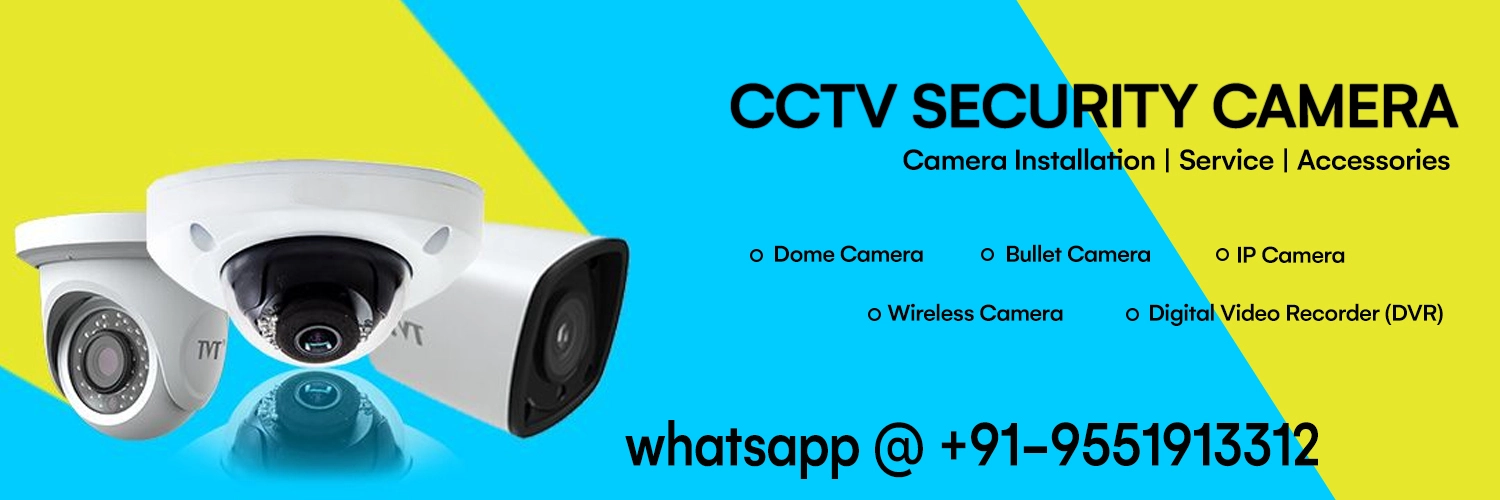Corporate Support : +91-9941959697 / 9941954195
Corporate Support : +91-9941959697 / 9941954195

CCTV security cameras, or Closed-Circuit Television cameras, are widely used for surveillance purposes in various settings, including homes, businesses, public areas, and government facilities. They provide continuous monitoring and recording of activities within their range. These cameras are connected to a private network, allowing authorized personnel to view live footage or playback recorded footage remotely.
There are several types of CCTV security cameras, each with its own design, features, and suitability for specific surveillance needs. Here are some common types:
These cameras are mounted on the ceiling and have a dome-shaped casing. They offer discreet surveillance and are less prone to vandalism.Dome cameras are named for their dome-shaped housing. They are often used indoors but can also be used outdoors. Dome cameras offer a sleek design and are less obtrusive, making them suitable for areas where aesthetics are important.
These cameras are cylindrical in shape and are often used for outdoor surveillance. They are easily noticeable and serve as a deterrent to potential intruders.Bullet cameras are cylindrical in shape and typically used for outdoor surveillance. They are called "bullet" cameras due to their resemblance to a bullet shell. Bullet cameras are usually weatherproof and offer long-range viewing capabilities, making them ideal for monitoring outdoor spaces such as parking lots, building perimeters, and highways.
PTZ cameras can be remotely controlled to pan, tilt, and zoom to focus on specific areas or objects. They provide flexibility in surveillance coverage.PTZ cameras offer the flexibility to pan (move horizontally), tilt (move vertically), and zoom in on specific areas of interest. They are often remotely controlled and can cover a wide area with just one camera. PTZ cameras are commonly used in large areas such as stadiums, airports, and city surveillance systems.
IP cameras transmit video data over an internet protocol network. They offer high-definition video quality and can be accessed remotely through a computer or smartphone.IP (Internet Protocol) cameras are digital cameras that transmit data over an internet network. They offer high-resolution video quality and can be accessed remotely via the internet, allowing users to view live feeds and recorded footage from anywhere with an internet connection. IP cameras can come in various form factors, including dome, bullet, and PTZ.
These cameras use Wi-Fi or other wireless technologies to transmit video data, eliminating the need for extensive wiring. They are easy to install and suitable for temporary surveillance needs.Wireless CCTV cameras transmit video signals wirelessly, eliminating the need for physical cables to connect to a recording device or network. They offer flexibility in installation and are often used in areas where it's difficult to run cables, such as historical buildings or temporary surveillance setups.
Day/night cameras are equipped with infrared (IR) LEDs that enable them to capture clear images in low-light or nighttime conditions. These cameras are essential for 24/7 surveillance and are commonly used in outdoor settings where lighting conditions can vary.
Also known as panoramic cameras, 360-degree cameras offer a complete view of the surroundings, eliminating blind spots. They are often used in large open spaces such as shopping malls, train stations, and warehouses.
These are just a few examples of the types of CCTV security cameras available. The choice of camera depends on factors such as the specific surveillance requirements, environmental conditions, budget, and desired features.
CCTV systems typically include a combination of cameras, a digital video recorder (DVR) or network video recorder (NVR) for recording and storing footage, and a monitoring system for live viewing. They play a crucial role in deterring criminal activities, monitoring premises for safety and security, and providing evidence in the event of incidents or emergencies. However, their use also raises privacy concerns, so it's important to deploy them responsibly and in compliance with relevant laws and regulations.